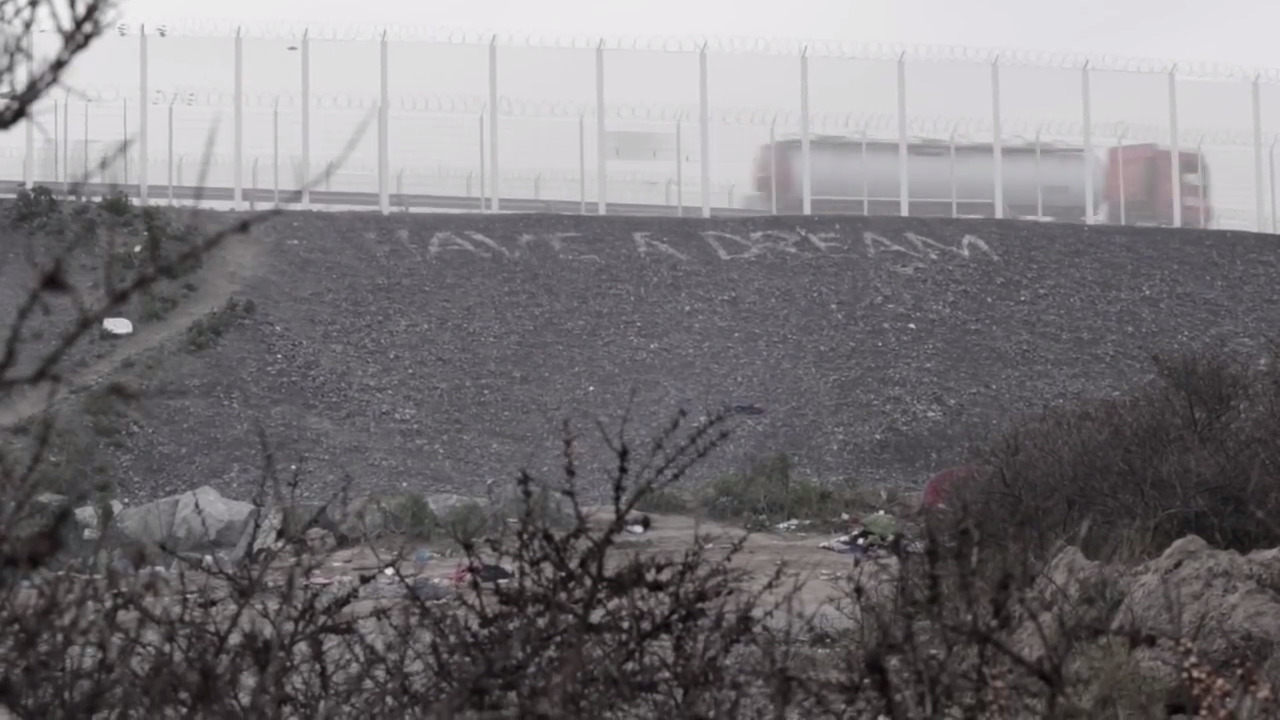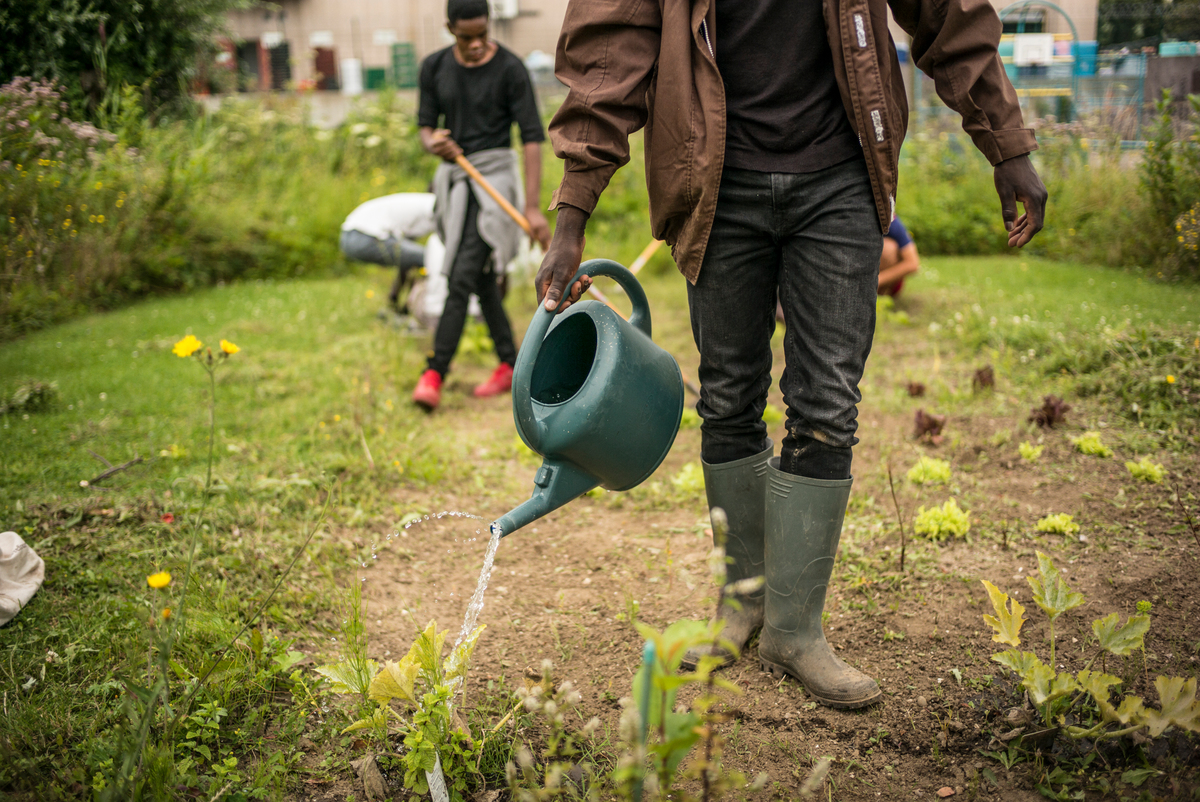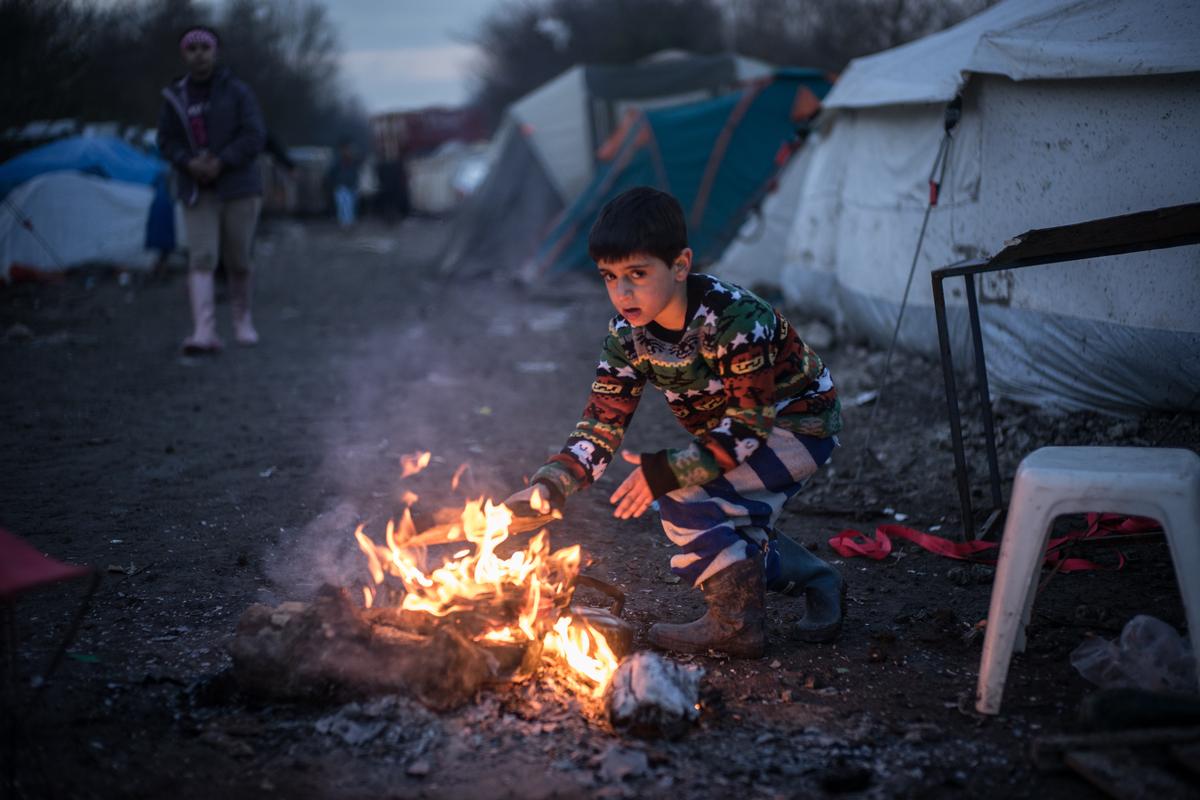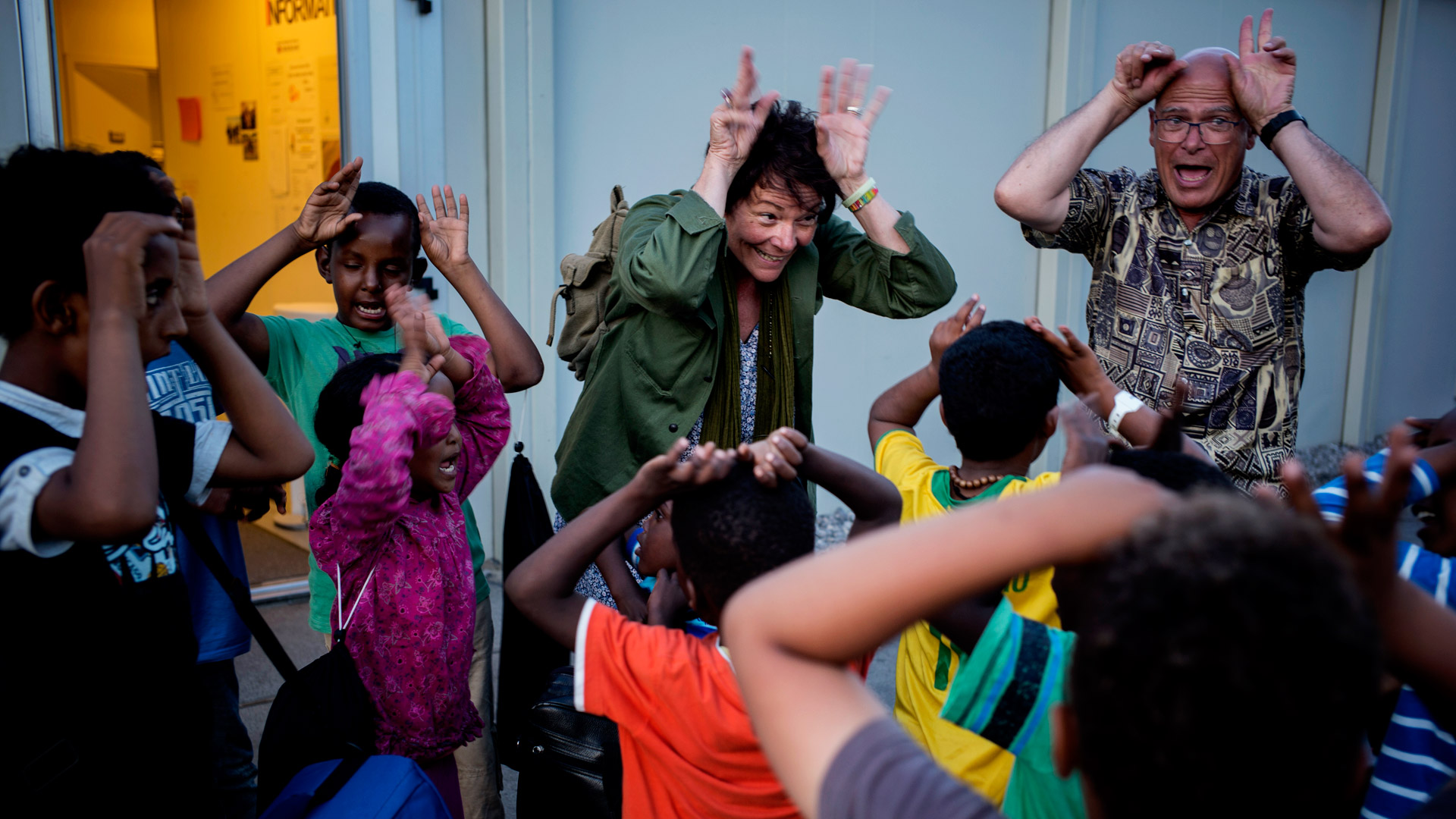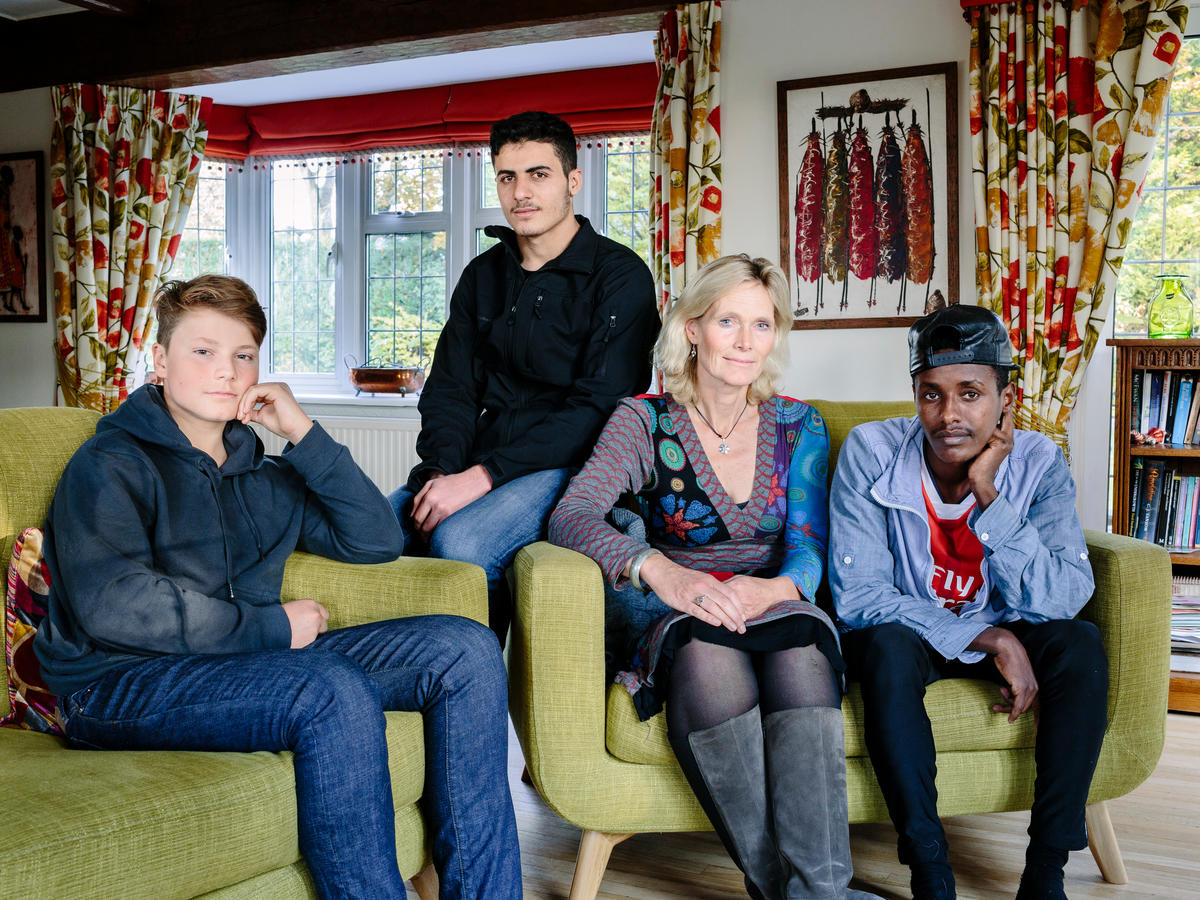Calais – A way out

Calais – A way out
It is a cold and rainy day in Calais, the port city in northern France. For some 4,000 refugees and migrants living here in the makeshift camp known as “the Jungle”, conditions are growing worse by the hour.
As I walk down the muddy path which serves as the main road of this sprawling site, an incoming text message lights up my phone. It is good news.
“I’m gonna stay,” writes Jabbar, 32, excitedly. “I have no reason to go. I mean everything is good. South of France. It’s cool.”
Jabbar comes from the Kurdistan region in northern Iraq. We met a few days earlier, when I joined him and 21 other refugees on a bus ride from the so-called “Jungle” to an accommodation centre in the French city of Istres, 1,000 kilometres south on the Mediterranean coast.
The French Government decided last October to organize the voluntary relocation of refugees and migrants from Calais to accommodation and orientation centres – known in French as “Centres d’Accueil et Orientation” or CAOs. By early February, over 2,400 people had chosen to go to one of the 92 CAO centres spread around the country.
“We grew up in fighting. We are tired of it.”
Jabbar arrived in France a few weeks ago, after fleeing conflict in Iraq, where he had been working for an oil company.
“We grew up in fighting,” he told me during the 10-hour bus drive from Calais to Istres. “We are tired of it. We all ran away. The company ran away.”
He described his hazardous journey from Iraq to Turkey, how he crossed the Aegean Sea to Greece and then walked through the Balkans.
“I saw people dying between Turkey and Greece,” he recalled.
Jabbar then made his way to Calais, in northern France, to look for two young friends there. He finally found them in a makeshift camp in nearby Grande-Synthe, where they were trying to cross to the United Kingdom.
About 2,500 refugees and migrants are currently reported to be living in Grande-Synthe, on the edge of Dunkirk, often in dire circumstances, aggravated by winter conditions. UNHCR is especially concerned about the living conditions for children, in particular unaccompanied and separated children, and has called for more emergency reception places to be established.
“At best, humanitarian assistance provided in these locations is a stopgap intervention to alleviate the worst suffering,” said UNHCR spokesperson William Spindler. “Fundamentally, the individuals concerned need information about their options in France, and those in need of international protection need to be strongly encouraged to seek asylum in France.”
Jabbar’s friends were living in desperate conditions and were sick. He convinced them to join him in Calais and take one of the twice-weekly buses leaving for accommodation centres elsewhere.
“I had to take the kids out of the Jungle. They were frozen. They were in the mud. I came to rescue my friends. Look at them. After three months in the Jungle, they are sick. I told them: ‘Why do you want to go to the UK? Try France. The Jungle is not France,’ ” he said.
“I had to take the kids out of the Jungle. They were frozen.”
“I went to see the OFII guys,” he continued, referring to the Office Français de l’Immigration et de l’Intégration. “I asked questions. They told me about the possibility of going to an accommodation centre. I convinced my friends to take the bus to there.”
Two weeks after their arrival in Istres, Jabbar and his two friends have started their asylum claim procedures in France.
Bewar, 27, was on the same bus from Calais to Istres. He was a barber in Mosul before he was forced to flee the city.
“I had a barbershop with friends working with me but I lost everything. Now I have nothing,” he told me during the bus trip. He had left Mosul in January 2015 because it was so dangerous there, particularly for Kurds.
“Sometimes we could not sleep at night when you hear the bombs. Nothing is working on Mosul – no hospitals, no schools – since Daesh arrived. I went to Dohuk. I stayed there but I had nothing there. I went to Turkey. I stayed there two months, then I went to Europe. I took a small dinghy from Turkey to Lesbos. It was not good. It was difficult. We were 100 with women and children, and pregnant women. I then took a train to Macedonia and then I can’t remember – it was so difficult,” he told me.
Even his name, Bewar, bears testimony to his plight. It means ‘I have no country’. His mother gave it to him when he was born in 1989.
“Kurdish people were in Turkey. We had no country at that time. I was born in Turkey and came back to Dohuk when I was a baby,” he explained.
Bewar says he has no family left. His parents both died before 2002.
“I stay here because I can’t go home.”
Bewar had spent three months in “the Jungle” before taking the bus to Istres. “I am good. I am better here than in the Jungle. I have been trying to go to England for one year,” he told me once we had reached Istres.
“I stay here because I can’t go home. I hope to live, to live good, to work. I don’t want to live a camp life. I don’t like camp life. I want a home. My only hope is not to live in a camp. I want to work. I don’t want to live from generosity of others. I don’t want charity. I want to work,” he added.

